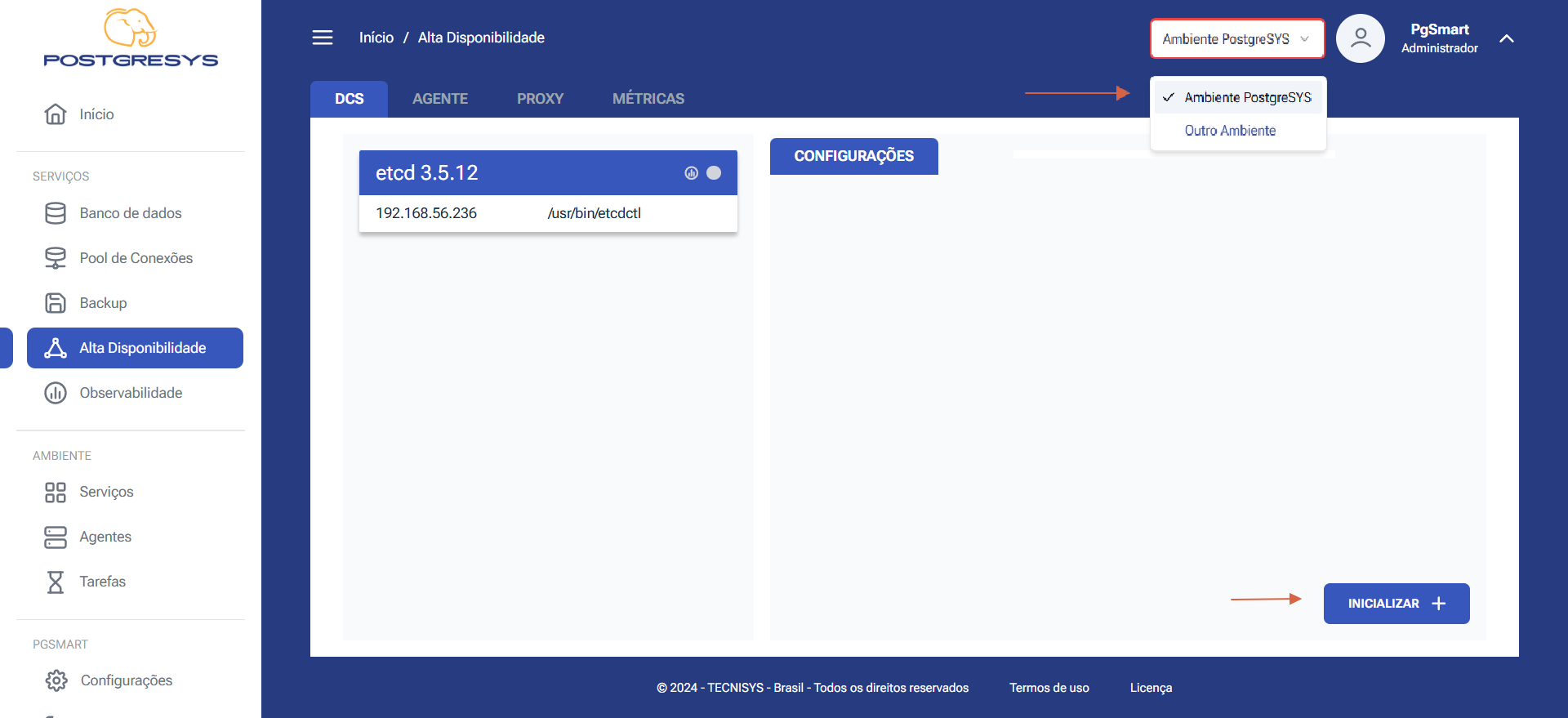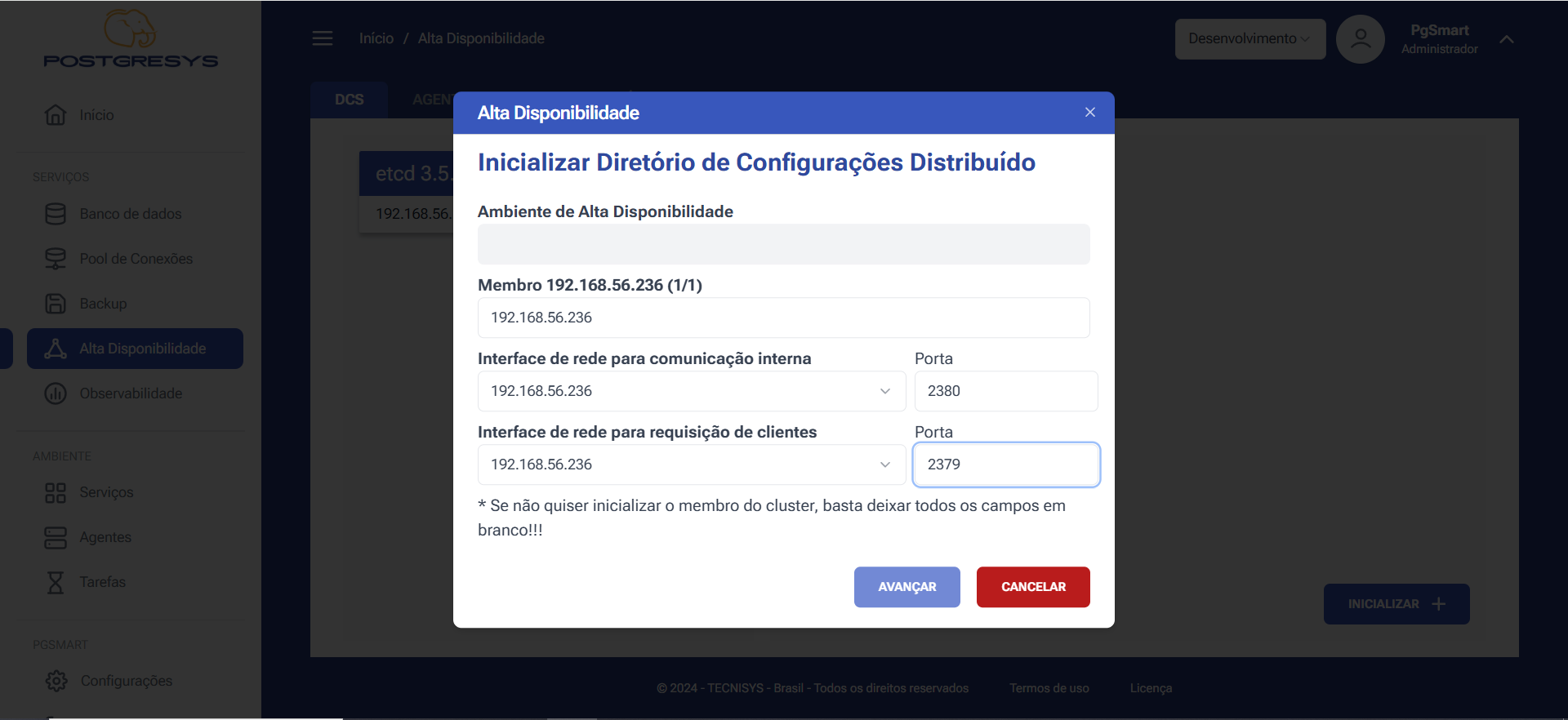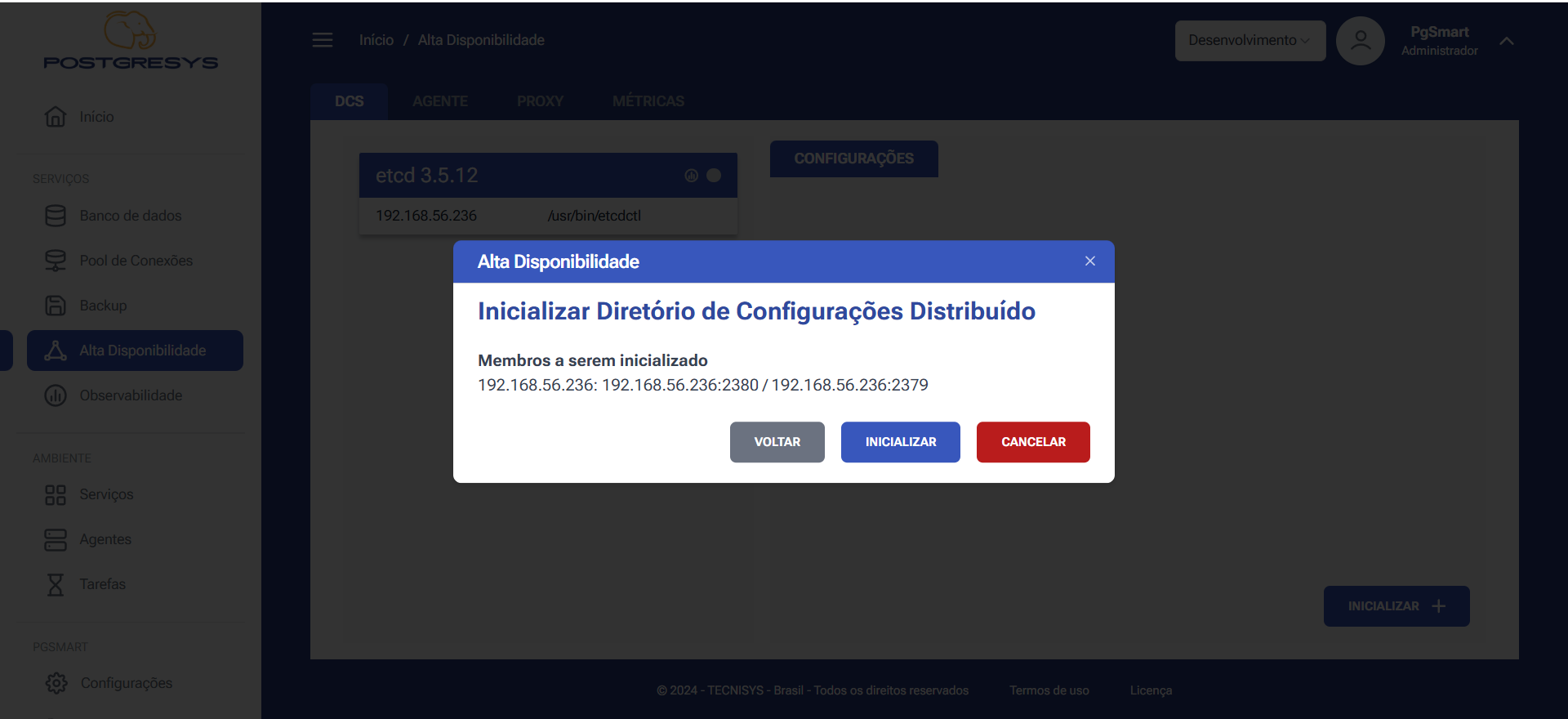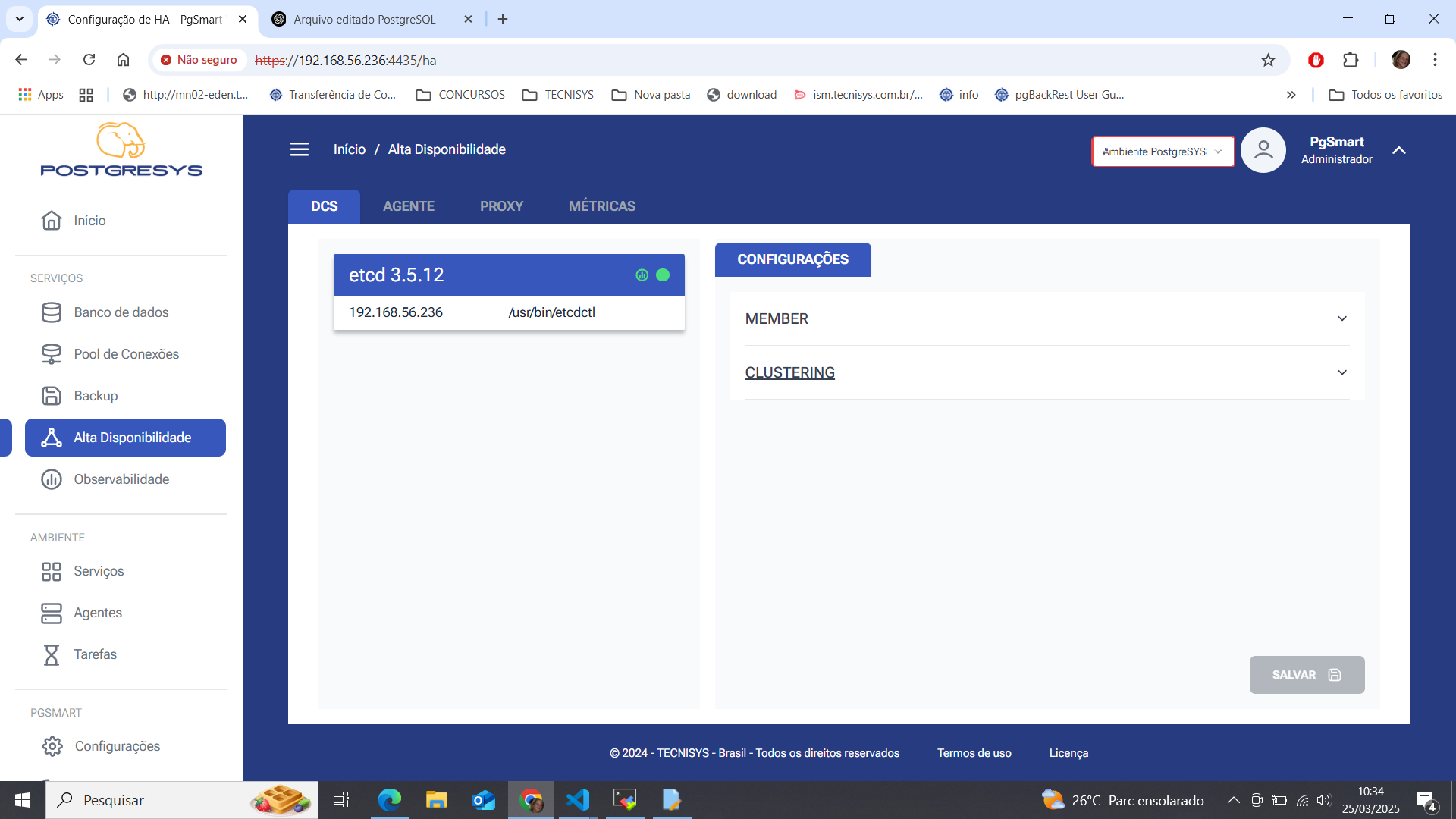High Availability DCS Configuration via PgSmart Web
Below are the necessary commands for configuring high availability in the PostgreSQL Ecosystem:
- PgSmart Client and Agent installed.
- All high availability components installed, respecting the minimum requirements.
- [Initialized] instance(initialize-web-db-instance).
- For a high availability environment, it is recommended to use dedicated servers for each component.
In a high availability environment, it is recommended to use dedicated servers exclusively for each component.
- Instructions
- Video
-
Select the desired
Environmentfrom the dropdown in the top bar. -
Select the
Alta Disponibilidadeoption in the side menu. If there are registered high availability services, thecardsof the registered etcd components for the selected environment will be displayed. -
Select the
DCStab. -
Click on
Inicializar, then: Figure 1 - High Availability DCS Configuration - Option Selection
Figure 1 - High Availability DCS Configuration - Option Selection4.1. Identify the server where the Distributed Configuration Repository (DCS) is installed. 4.2. Identify the internal network interface used by the DCS servers to communicate with each other. (It will be used internally by the DCS when there are multiple servers with the repository so they can communicate). 4.3. Identify the server port for internal communication. 4.4. Identify the network interface to be used for client requests to the Distributed Configuration Repository (DCS). 4.5. Identify the port to be used for client requests to the Distributed Configuration Repository (DCS).
-
Click
Avançar. -
Click
Inicializar. Figure 2 - High Availability DCS Configuration - Data Registration
Figure 2 - High Availability DCS Configuration - Data Registration Figure 3 - High Availability DCS Configuration - Confirmation
Figure 3 - High Availability DCS Configuration - Confirmation Figure 4 - High Availability DCS Configuration - Initialization Confirmednote
Figure 4 - High Availability DCS Configuration - Initialization Confirmednote-
If you don't want to initialize the cluster member, just leave all fields blank.
-
To confirm the default values provided, simply fill in the additional fields and proceed to the next screens.
-